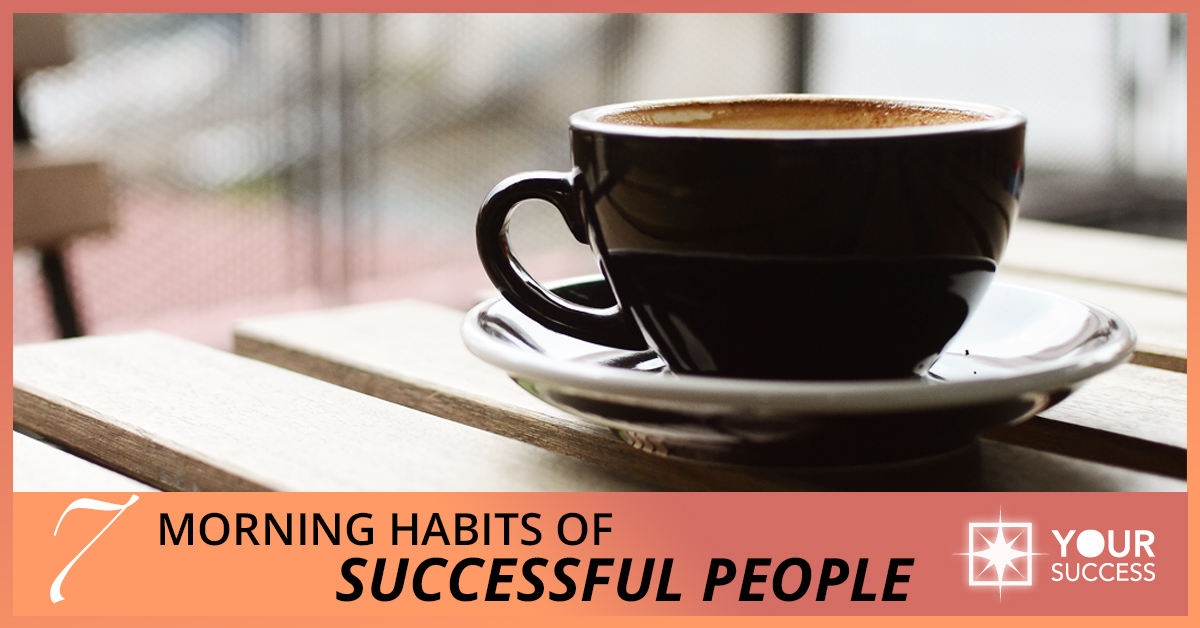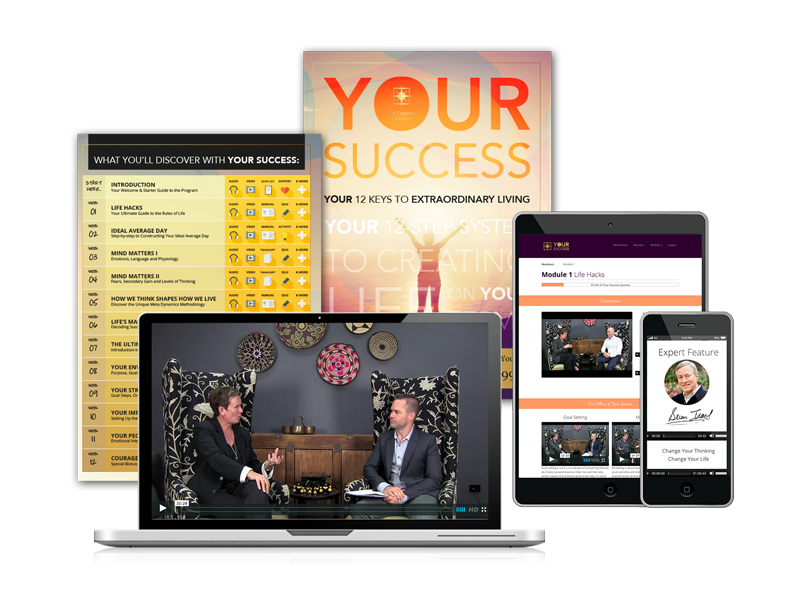Whether you’re all gung-ho ready to tackle your task list or barely stumbling out of your bed in the mornings, the way you kick-start your day sets a tone for rest of the day ahead of you.
Some like to dive straight into their inbox to get an idea of how the day’s looking, whereas others prefer more quiet.
Whatever your style, it’s important to have a habit around it, instead of a one-off.
And once you’ve tested it out, you can tweak it or stick to it depending on the results.
Gary Vaynerchuk, CEO of VaynerMedia, likes to plan his day right to the minute first thing in the morning. Then he jumps on to Twitter searching for his handle and responding to each and every tweet.
On his way to work, he calls his mother, father or sister, a time he cherishes the most.
Many leaders and top performers like to stick to such certain habits that boost their productivity and creativity, and set a tone for the day ahead.
Here are 7 morning habits of successful people you can replicate for your own mornings.
7 Morning Habits of Successful People
1. Wake up an hour early
5 AM.
Your alarm rings.
With squinted eyes, you take a look at the time. It’s still dark outside.
You figure it won’t hurt to sleep for a few more minutes.
Before you know, minutes turn into hours and you wake up with a jolt.
7 AM.
You’re late! You jump out of the bed, take a quick shower, grab your stuff to begin your commute to work starting your day in chaos.
Tomorrow for sure…
You think to yourself.
You’ve been meaning to meditate, write that book and exercise for ages. Only if you could wake up early.
The math is simple – the earlier you wake up, the more time you’ll have to get things done.
If you make it a habit to wake up early at the same time every day, your body adjusts to the rhythm. You feel tired at night and fall asleep sooner, rather than tossing and turning on the bed and wasting time.
It’s also a great way to work on your side-goals. Your work takes most of your day and if you have kids, this could be the quiet time you need.
Last but not the least, you can enjoy the sunrise. When you’re locked away in your office or with your clients during the day, you don’t get to do that very often.
Relaxation and leisure is not a waste of time – they bring about a peaceful state of mind.
2. Eat breakfast
Do you ever skip breakfast?
If you’re like 40% of Australians, you’d have answered yes.
The word “breakfast” comes from breaking the fast. After going without eating for the whole night, you want to eat well for the first meal of the morning. Eating fuels your brain and boosts productivity.
According to American Journal of Clinical Nutrition, skipping breakfast can increase chances of diabetes in women. Eating breakfast is a smart move because it is likely to improve cognitive function related to memory.
Plan your breakfast ahead of time so you don’t waste time deciding what to eat. Or stick to one or two types of breakfast. Smart breakfast is important for your brain to keep functioning at its full capacity through the day.
3. Prioritise what’s important
Every minute in planning saves several in execution.
Prioritise what’s most important in the short-term and long-term. Sit down and write the list on a piece of paper.
Writing helps clarify your goals. Set priorities on your list the night before.
A good principle to follow is 80/20 rule. The principle says that 80% of your productivity will depend on 20% of tasks. So if you have 10 items on your week’s list, 2 of them will lead to most productivity.
In short, those 2 tasks will be most important for you to tackle.
Make it a habit to tackle this 20% of your tasks upfront. That way, you have the rest of the mornings freed up to do something else.
4. Reflect
You can spend 5 minutes in quiet. Or you can meditate for a few minutes. Focus on just one thing, such as your breathing, or follow someone’s voice through a guided meditation.
Don’t write off meditation as another boring or useless activity. Sitting in one spot doing nothing can appear to be a waste of your time, especially if it does not have instant, tangible results.
But meditation has proven long-term benefits such as increased awareness, reduced stress levels, increased memory, decreased blood pressure and lower cholesterol levels.
And you don’t have to do it for hours sitting in an uncomfortable lotus position to start with. Start small with a few minutes every morning and slowly increase your time.
5. Ask one important question
If today was the last day of your life, how would you spend it?
This question gets right to the core.
If your answer is different than what you’re currently doing, you know you got to change something, fast. Right?
6. Eat a live frog
Re-prioritise your task list keeping the most-dreaded task at the top. Brian Tracy calls that biggest, most important task your “frog”.
If you eat a live frog first thing in the morning, you can go through the rest of your day feeling satisfied and rejuvenated.
And what if you have more than one frog to eat? Choose the one that’s hairier, uglier and more difficult.
The key to reach peak productivity and success on a daily basis is to develop a habit of tackling the hardest task first.
Eating a live frog generates feelings of satisfaction, happiness, competence and clarity and releases endorphins in your brain.
Ask: What’s my frog for today? Then go ahead and eat it. Make it a habit to do this every day and you won’t have a task on your list you despise any more.
7. Pretend that the day has shrunk
A great strategy that’s worked for me is to pretend I only have 23 hours instead of 24.
Think about it: If this were the case, what would you cut off from your routine?
Now imagine the day has expanded to 25 hours. What most important thing would you fill up this extra hour with?
Go ahead and do it.
Your Turn!
What are your thoughts about these 7 morning habits of successful people? Which one’s your personal favourite? Perhaps you have more to add to this list.
Leave a comment below and let me know. Remember, do your best to share as much detail as you can because thousands of amazing readers come here for inspiration each week. Your story may just be what they need to have a breakthrough, overcome a negative thought or develop courage to achieve their goal.



